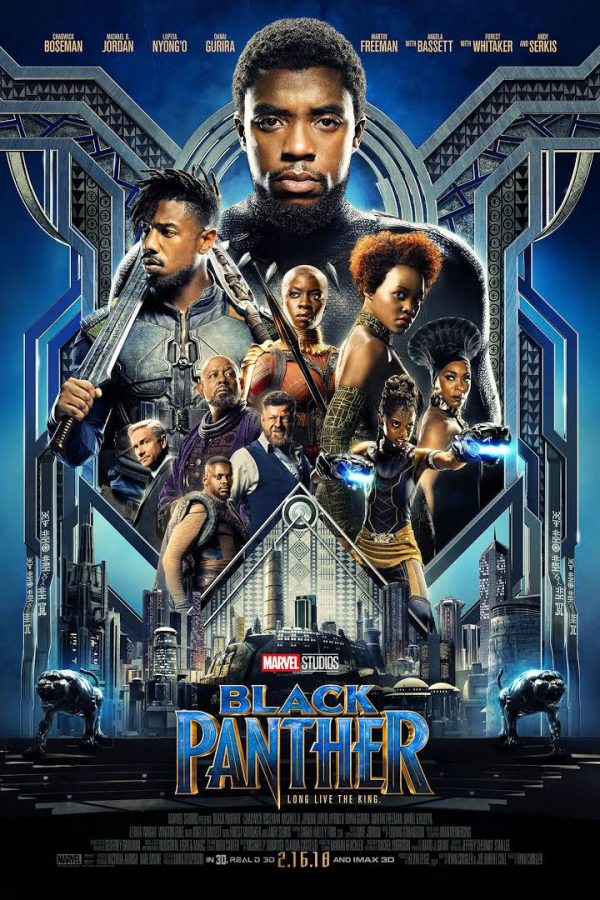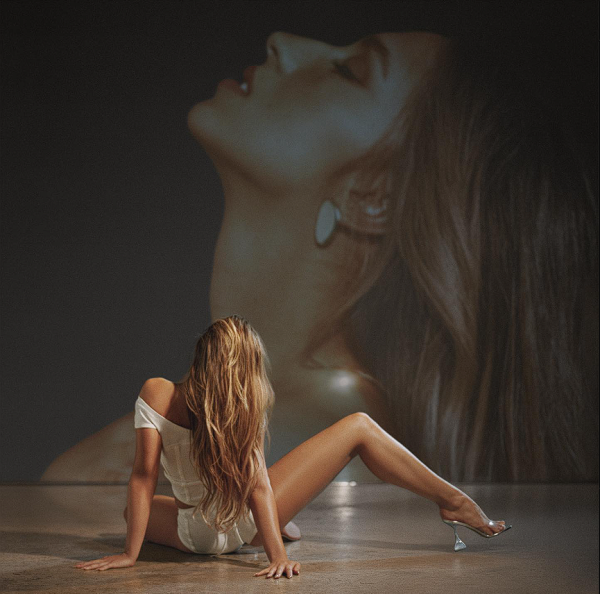Review: “Black Panther”
The Marvel Cinematic Universe recently celebrated a milestone in its history ― a decade of bringing comic book heroes to life on the silver screen. Marvel’s momentum shows no signs of slowing down, however, with recent addition “Black Panther” making a significant breakthrough in minority representation in film.
Though “Black Panther” does follow Marvel’s usual plot formula, it distinguishes itself from other films by tackling important social issues, creating a distinct style and still possessing Marvel grandeur. The film delivers on nearly every level, from its exceptional performances to the stunning visual designs which fuse African tribal culture with cutting-edge modernity.
An animated sequence serves as the introduction to Wakanda, an African kingdom rich with vibranium, the strongest and most coveted metal in the Marvel universe. Wakanda maintains the image of a third-world country to disguise its superior technology, a decision upheld by all of its past rulers, including newly appointed Black Panther and king, T’Challa (Chadwick Boseman).
Still grieving over his father’s death (depicted in “Captain America Civil War”), T’Challa faces immediate challenges to his rule in the form of ritualistic hand-to-hand combat and political concerns about his nation’s future international role. Later on, outside forces –– Andy Serkis’ Ulysses Klaue, a weapon’s dealer with his eye on vibranium, and Michael B. Jordan’s Erik “Killmonger” Stevens, a ruthless soldier with mysterious resentment towards Wakanda –– unite to wreak havoc on the kingdom.
Michael B. Jordan delivers a powerful performance as arguably the most complex, three-dimensional Marvel antagonist to date. Jordan effortlessly switches from vengeful to entirely vulnerable. Instead of completely villainizing Killmonger, director Ryan Coogler makes him worthy of sympathy and understanding. By giving Killmonger almost as much screen time as Boseman’s Black Panther, the film fully develops Killmonger’s backstory with emotional flashbacks that explain the motivations behind his actions, which are driven by a strong desire for social justice.
The rest of the ensemble is just as captivating and, it should be noted, predominantly female. T’Challa’s younger sister Shuri (Letitia Wright), the mastermind behind most Wakandan technology, shines as a delightful source of humor and intelligence. Okoye (Danai Gurira), general of the king’s all-female guard, and Nakia (Lupita Nyong’o), a spy and T’Challa’s former girlfriend, similarly stand out as impactful female characters. All of their interactions with Boseman’s T’Challa, as well as each other, are full of wonderful chemistry.
A mutual respect exists between the male and female characters; neither seems intimidated by the other’s strengths, which is a refreshing departure from the many Hollywood films that pit female leads against men in power struggles. At a point, an adviser told T’Challa to surround himself with those he trusts, and the majority of his inner circle happens to be brave women. There is an unsaid understanding that they work better as a united force, perfectly executing what feminism is all about.
Though the CGI-heavy final battle is a bit underwhelming when compared to the more intimate fight sequences, “Black Panther” more than makes up for it with stellar costume and set design from Ruth Carter and Hannah Beachler. Afro-futuristic elements are expertly layered with rich traditional culture, giving Wakanda a wholly unique appearance and depth. The dichotomy works seamlessly; the country could almost be a real place with such extensive traditional details, yet the ultramodern imagery gives it the impression of an impossible utopia.
Coogler smoothly integrates important questions and issues like the impact of colonialism and white supremacy, elevating it beyond a standard action flick to a social commentary. “Black Panther” sets the bar for all of the future installments in the Marvel Cinematic Universe, and every movie in the film industry, for that matter. More than worthy of an A, “Black Panther” deserves to be celebrated. As Shuri told T’Challa in the film, “The Black Panther lives,” and now that he does, this film’s political and social significance won’t fade anytime soon.

Senior Morgan Pryor is a film enthusiast, visual artist and regular Comic-Con attendee. She plans on going to college to study studio art and journalism.





